
In the Bhagavad-gita (13.08-12), Krishna characterizes knowledge in terms of twenty virtues that indicate the overall direction of one’s heart. Such characterization implies that the truly knowledgeable are defined not by what they know, but by what they love. Let’s explore what this characterization means for Arjuna.
The Gita begins with Arjuna in tears, unable to fight against his relatives (01.26-30). Though he tries to justify his reluctance by giving various reasons, he still ends up perplexed and paralyzed (02.06). Krishna begins his response telling Arjuna that his words don’t match his emotions — he is lamenting for the temporary that isn’t worthy of lamentation (02.11).
Continuing this theme that education implies an elevation of emotions, Krishna emphasizes that what we truly know is seen by what we love. Specifically, if we really come to know Krishna, the all-attractive ultimate reality, we will surely love him. Krishna brings up this theme repeatedly throughout the Gita (04.09-10, 07.19, 10.08, 15.19, 18.64-66).
In this light, two items from the thirteenth chapter list are significant: detachment from one’s relatives (13.10) and unflinching, undeviating practice of bhakti (13.11). These twin items imply that knowledge will transfer Arjuna’s primary attachment from people in this world to Krishna.
Does this transfer of attachment mean that he will become apathetic toward everyone else? No, not at all. Krishna is everyone’s greatest well-wisher (05.29). To gain real knowledge is to know that all living beings are his and are in him (04.35). Krishna wants the best not just for Arjuna but for everyone. When Arjuna agrees to do Krishna’s will, he will be furthering the ultimate good of everyone, even those he will be fighting against.
One-sentence summary:
By characterizing knowledge in terms of virtue that indicate the direction of our heart, Krishna urges Arjuna to wisely focus his love on the One who is everyone’s greatest well-wisher.
Think it over:
- What are the knowledgeable defined by?
- How does Krishna consistently emphasize that education leads to an elevation of emotions?
- What does Krishna’s characterization of knowledge mean for Arjuna?
***
13.11: … Constant and unalloyed devotion to Me; aspiring to live in a solitary place; detachment from the general mass of people; … [ – all these I declare to be knowledge].
To know more about this verse, please click on the image

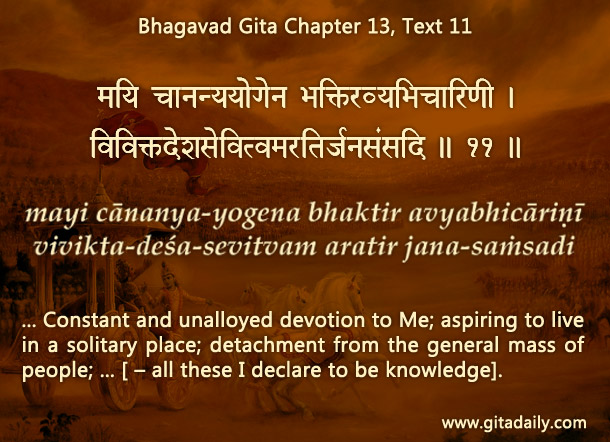

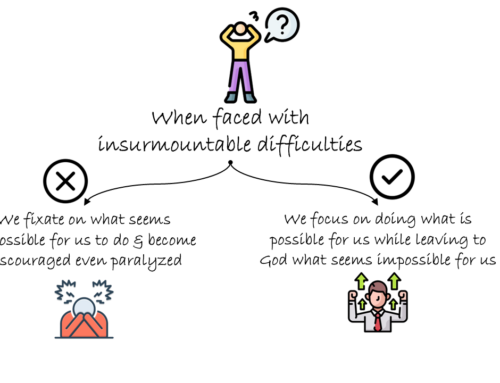

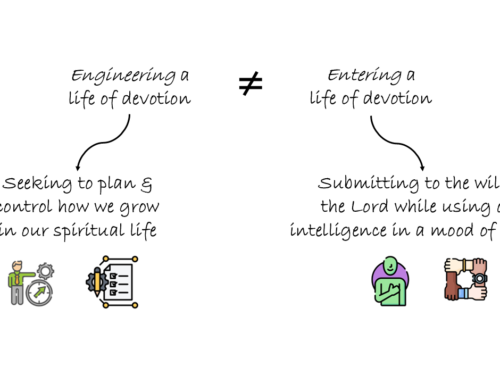

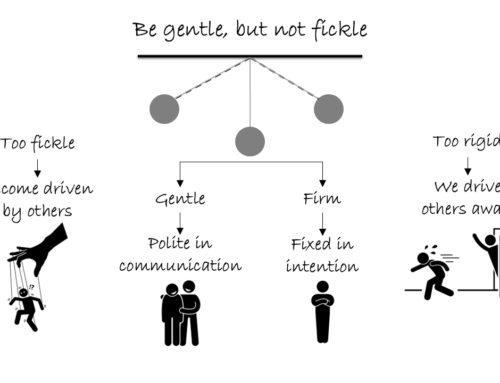

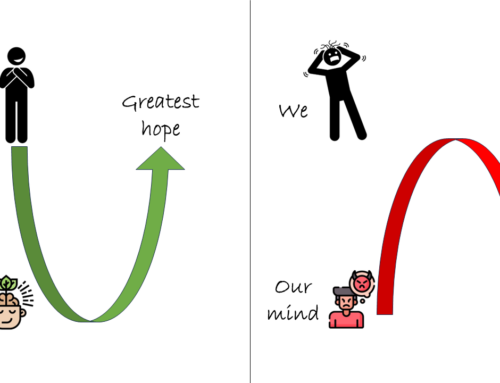

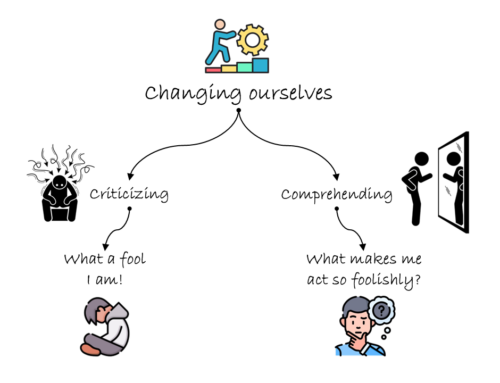
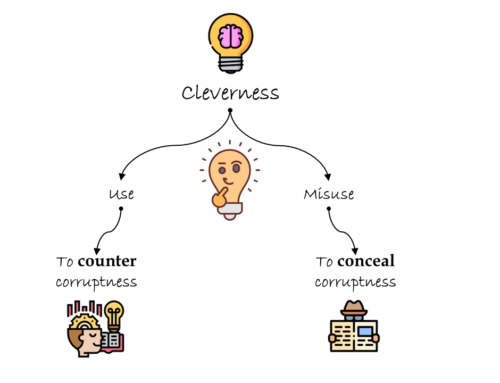
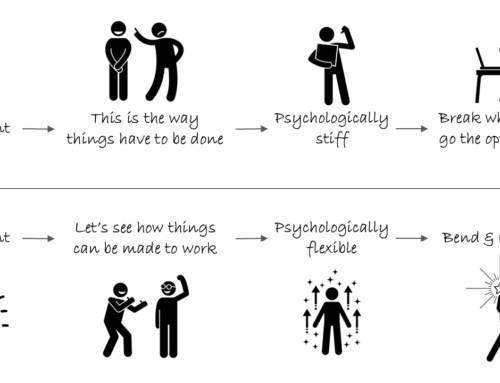
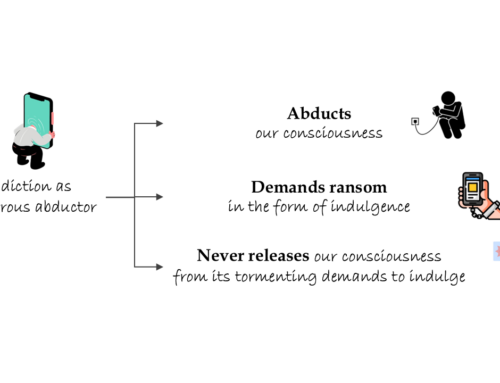
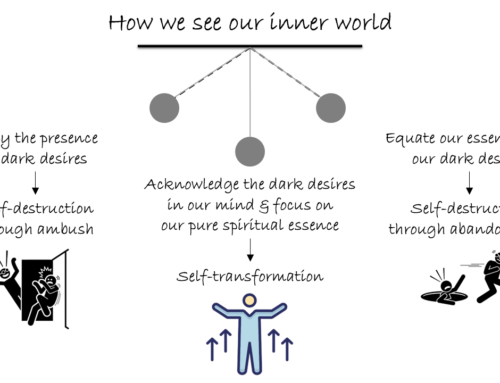
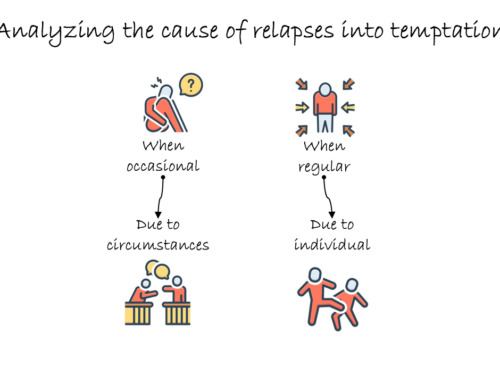

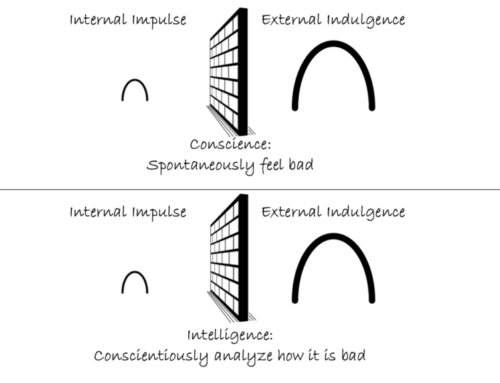
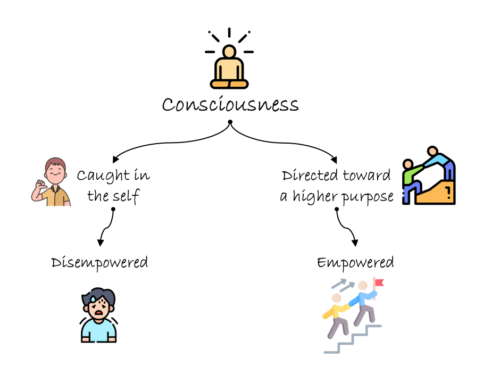
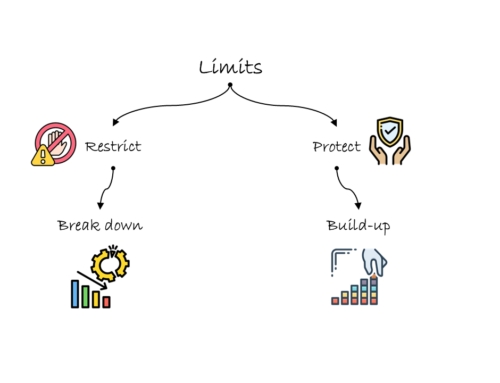
Hare Krishna,
PAMHO,
Thank You prabhu ji, wonderful text.
…False ego means accepting this body as oneself. When one understands that he is not his body and is spirit soul, he comes to his real ego. Ego is there. False ego is condemned, but not real ego. In the Vedic literature (Brhad-aranyaka Upanisad 1.4.10) it is said, aham brahmasmi: I am Brahman, I am spirit. This “I am,” the sense of self, also exists in the liberated stage of self-realization. This sense of “I am” is ego, but when the sense of “I am” is applied to this false body it is false ego. When the sense of self is applied to reality, that is real ego. There are some philosophers who say we should give up our ego, but we cannot give up our ego, because ego means identity. We ought, of course, to give up the false identification with the body…
Will we ever learn…?
Ys,
Nice reflection.